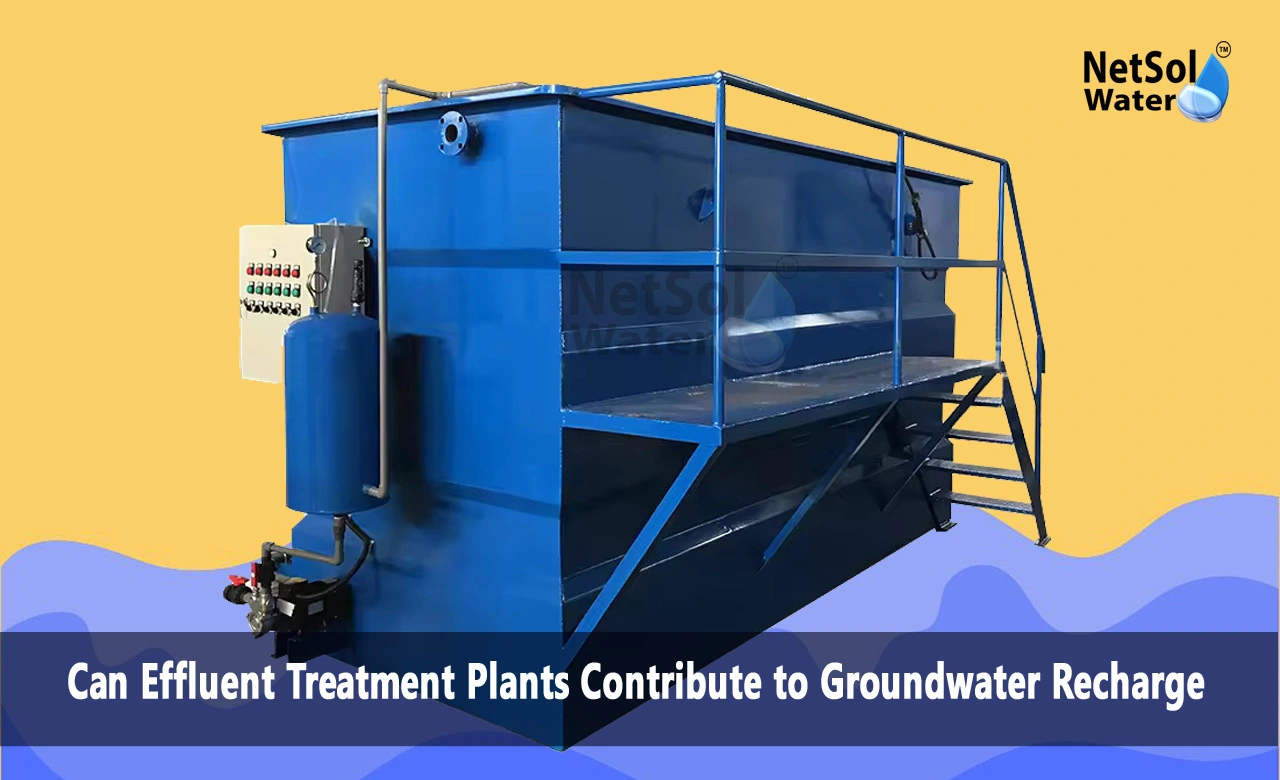Can Effluent Treatment Plants Contribute to Groundwater Recharge?
Water scarcity is a pressing global issue, affecting millions of people worldwide. As populations continue to grow and climate change exacerbates water stress, the need for sustainable water management strategies becomes increasingly crucial. One potential solution lies in the utilization of effluent treatment plants for groundwater recharge. This practice not only addresses water shortages but also promotes environmental sustainability by replenishing aquifers and minimizing the reliance on freshwater sources.
Understanding Groundwater Recharge
Groundwater recharge is the process by which water from various sources, such as precipitation, surface water, or artificial means, replenishes underground aquifers. These aquifers serve as vital reservoirs, providing a significant portion of the world's freshwater supply. However, excessive groundwater extraction and insufficient natural recharge have led to the depletion of many aquifers, threatening water security and ecological balance.
The Role of Effluent Treatment Plants
Effluent treatment plants play a crucial role in the treatment and purification of wastewater generated from various sources, including domestic, industrial, and municipal sources. These plants employ advanced technologies to remove pollutants, pathogens, and contaminants from the wastewater, ensuring that the treated effluent meets stringent quality standards.
Effluent Treatment Plants and Groundwater Recharge
Traditionally, treated effluent from effluent treatment plants has been discharged into surface water bodies or used for non-potable purposes, such as irrigation or industrial processes. However, an innovative approach involves utilizing this treated effluent for groundwater recharge, either through direct injection into aquifers or through surface infiltration techniques.
Direct Injection
Direct injection involves the controlled release of treated effluent directly into aquifers through injection wells or infiltration basins. This method allows for precise targeting of specific aquifers and can be particularly effective in areas with limited surface water sources or where surface infiltration is impractical.
Surface Infiltration
Surface infiltration techniques work by letting treated effluent out onto surfaces that water can soak through, like spreading basins or ponds made for infiltration. The effluent moves slowly through the soil and eventually gets to the aquifers underneath, filling them up again. This way can also help bring back natural habitats and make wetlands.
Benefits of Effluent Treatment Plants for Groundwater Recharge
Water Conservation: By utilizing treated effluent for groundwater recharge, effluent treatment plants contribute to the conservation of freshwater resources, reducing the demand for potable water and alleviating stress on natural water sources.
Aquifer Replenishment: Groundwater recharge through effluent treatment plants helps to replenish depleted aquifers, ensuring a reliable and sustainable water supply for various uses, including domestic, agricultural, and industrial purposes.
Environmental Benefits: Recharging aquifers with treated effluent can support the restoration of natural ecosystems, maintain wetlands, and promote biodiversity by providing a consistent water source.
Reduced Reliance on Imported Water: In regions with limited local water resources, groundwater recharge through effluent treatment plants can reduce the reliance on imported water, leading to cost savings and increased water security.
Mitigation of Land Subsidence: By replenishing aquifers, effluent treatment plants can help mitigate the risk of land subsidence caused by excessive groundwater extraction, protecting infrastructure and minimizing the associated economic and environmental impacts.
Challenges and Considerations
While effluent treatment plants offer promising opportunities for groundwater recharge, several challenges and considerations must be addressed:
Public Perception: Public acceptance and trust in the use of treated effluent for groundwater recharge can be a significant hurdle. Effective public education and transparency regarding treatment processes and water quality standards are essential.
Regulatory Framework: Appropriate regulatory frameworks and guidelines must be established to ensure the safe and effective implementation of groundwater recharge projects using treated effluent.
Treatment Standards: Stringent treatment standards and monitoring protocols are crucial to ensure that the treated effluent meets the necessary water quality criteria for groundwater recharge, protecting public health and the environment.
Site Selection: Careful site selection and hydrogeological assessments are required to identify suitable locations for groundwater recharge, considering factors such as soil permeability, aquifer characteristics, and potential contamination risks.
Long-term Monitoring: Continuous monitoring of groundwater quality and aquifer levels is essential to evaluate the effectiveness of groundwater recharge projects and identify any potential issues or impacts.
Integration with Water Management Strategies: Effluent treatment plants for groundwater recharge should be integrated into broader water management strategies, considering factors such as water demand, alternative water sources, and the overall sustainability of the water supply system.
Conclusion
Effluent treatment plants provide a hopeful answer for refilling groundwater, which helps with water safety and protecting the environment. By using treated effluent to refill aquifers, these plants can save fresh water, ease water shortages, and help restore ecosystems. But, making this work needs a complete plan, which covers what people think, the rules, how well the treatment works, where to put the plant, and watching things for a long time. Since water shortages are a big problem all over, adding effluent treatment plants to strategies for refilling groundwater is a big step for managing water well and making sure there's enough for the future.
Do you need an advice or assistance on selecting the best water and waste water treatment unit? We have solutions for all your problems!
Let us know your problem, our experts will make sure that it goes away.
For an assistance or related query,
Call on +91-965-060-8473 Or write us at enquiry@netsolwater.com



